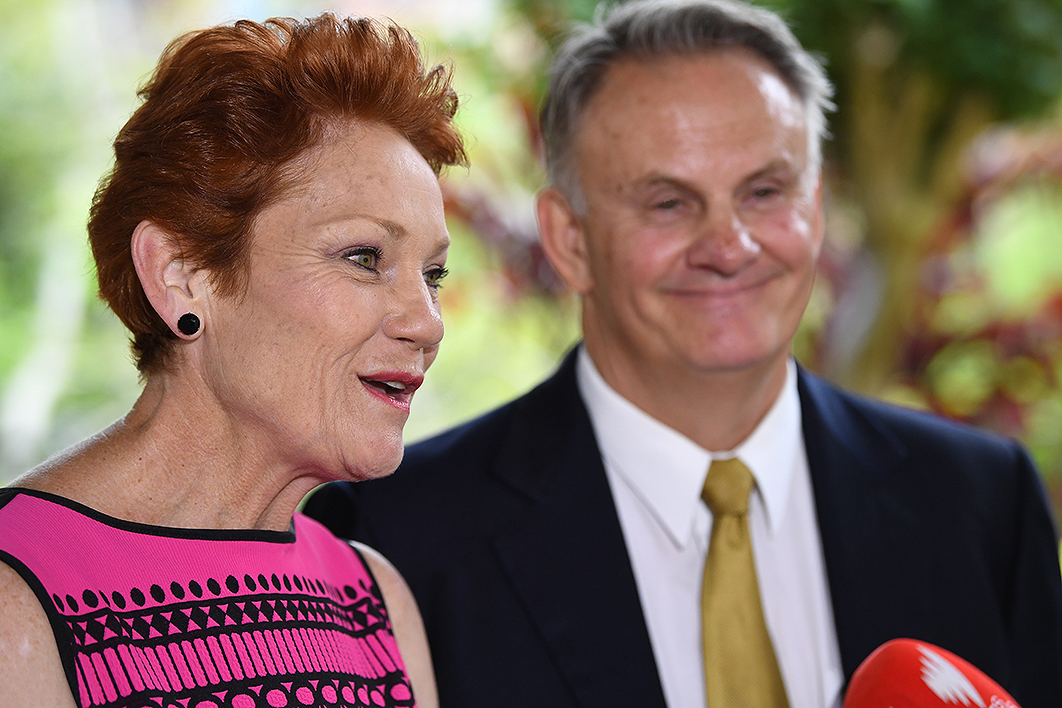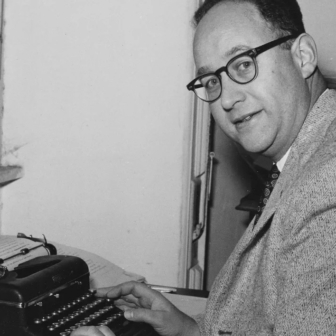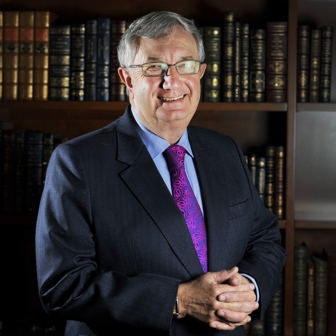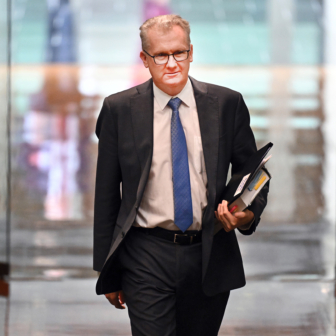Hoodwinked: How Pauline Hanson Fooled a Nation
By Kerry-Anne Walsh | Allen & Unwin | $29.99 | 304 pages
Twenty years and four days after her first, incendiary speech as the independent member for Oxley in the House of Representatives, Pauline Hanson delivered her second maiden speech in September 2016, this time as a convicted, sentenced, imprisoned, released, acquitted and newly elected senator for Queensland.
Second time around, the nervous neophyte of 1996 was replaced by a more calculating politician, ladling out a still-potent brew of scares to her loyal, angry supporters. She railed against her “false” imprisonment, the “trumped-up charges” that had put her in “maximum security.” She blamed Australia’s “decline” on globalisation, bewailed the “destruction of our farming sector” and, most memorably, reworked her claim about Australia being swamped. Where it had been a flood of “Asians” in 1996, she substituted a contemporary target: “Now we are in danger of being swamped by Muslims, who bear a culture and ideology that is incompatible with our own.”
Wait a minute, says Hanson biographer Kerry-Anne Walsh. Let’s look at the facts. The charges against Hanson were not “trumped up.” Her conviction by a jury on charges of fraud (relating to the registration of her political party) and dishonestly obtaining cheques from the electoral commissioner of Queensland to the value of around $500,000 led to a sentence of three years’ jail. After eleven weeks this was overturned on appeal. Her assignment to the maximum-security wing at Brisbane Women’s Prison had been for her own protection, and besides, she herself admitted later that conditions inside were “pristine.” “There was air-conditioning, exercise bikes, a personal trainer…” she confided to shock jock Ray Hadley. “We had fantastic meals, our washing was done for us, we just had to keep our cells clean. There was a library, television in our cell, education facilities.”
Walsh dissects Hanson’s other claims in similar fashion. Using data from the OECD, the Department of Agriculture, the 2016 census and other authoritative sources, she demonstrates that the Australian economy has benefited from globalisation, that production in the farming sector is at record levels, and that Muslim adherents constitute just 2.6 per cent of the population.
Walsh’s conclusion: Hanson’s speech was “a fraudulent call to arms to the blinkered and ignorant, based on distortions. Hanson is the mistress of fake news and alternative facts.” Confronted by evidence that her claims are inaccurate, she digs in. “This is quintessential Hanson,” Walsh comments.
So, no, this is not the authorised biography.
Kerry-Anne Walsh is an experienced reporter who clocked up twenty-five years in the Canberra press gallery before setting up a communications consultancy. She doesn’t mind taking sides or dishing out criticism, having turned her guns on the media in her 2014 book The Stalking of Julia Gillard. She declares she did not set out to write an “on the one hand, on the other” treatise about Hanson, and she has delivered.
What she has done, and it is a service to us all, is to collate and document Hanson’s words and actions through a long political career.
Retrieved from Hansard, newspapers, TV transcripts and websites, here is the full archive of awfulness: Hanson’s words of self-pity and narcissism, of vilification and jaundice, of inconsistency, ignorance and incoherence. Here are the minders: John Pasquarelli, David Oldfield, David Ettridge and James Ashby — though it is never clear if she ran them or the other way around. Here are the cameos of colourful Queenslanders: Joh and Flo Bjelke-Petersen, Mal Brough, Peter Fisher and the very peculiar Malcolm Roberts, dual citizen and self-styled “living soul.” Here is the chronology of taxpayer-funded election payouts to Hanson’s various political entities, including as an independent candidate: an aggregate of more than $8 million over the twenty years up to 2016. Here is the evidence of how the One Nation movement was ruthlessly transformed into a personal autocracy, “a business disguised as a political party.”
It is a freewheeling narrative, delivered with a neat turn of phrase (“James Ashby is to controversy what cow dung is to blowflies: he attracts it in swarms”).
As Walsh draws out the patterns in Hanson’s career, its remorseless logicbecomes clear. Whether they be with husbands, donors, enthusiastic rank-and-file supporters, staffers, One Nation party officials, endorsed One Nation candidates, or even the aforementioned minders, so many of Pauline Hanson’s personal and political relationships have traced the same trajectory, from trust to bust. One feels sympathy for the loyalists — retirees, pensioners, small businesspeople — who put their faith in Hanson and devoted their time and efforts to her movement, only in many cases to be pitilessly thrown out of the organisation by a high-handed executive acting in Hanson’s name — and given an earful on the way out. Two individuals named affectionately by Hanson in the Senate maiden speech, a staffer and a party official, were disposed of shortly afterwards. The pattern recurs: “People were useful, up to the point when they weren’t; then they were adversaries, never to darken her sunshine again.”
With Mark Latham now officially on Hanson’s side, as the lead One Nation candidate for the NSW upper house, one can only believe that this relationship, too, is doomed for a messy end. (Reviewing Hoodwinked in the Australian Spectator, Latham dismissed it as a “book of insults” and — pot, kettle — criticised Walsh for not disclosing her “allegiances and bias.”)
And that’s Walsh’s conclusion. Hanson’s career has displayed “an unerring ability to hoodwink her apostles into believing she has nothing else on her mind but their welfare.” Her anger, however, has less to do with the plight of the average Australian and more to do with “personal revenge and misplaced victimhood.” She is not an anti-politician, but rather a politician like any other, with a brand to maintain:
She relies on… keeping alive the image that she’s a battler. Even though every shred of evidence points to the reality that she long ago ceased to be that person… She’s permanently fed up, sick and tired of mainstream politicians, always standing up for “the people.” But the reality of her parliamentary record shows she does deals with the government that end up screwing the battler; she negotiates cynical preference deals that defy her anti-politician persona; and she only stands up for “the people” when she is standing in front of them in campaign mode.
This book would have been doubly valuable with an index and proper citations. In the absence of these tools, the many references that Walsh has rescued from obscurity risk returning there, and much of the utility of her effort will be lost to those future researchers who wish to delve into this populist phase of Australian politics. Perhaps citations could be posted on the publisher’s website?
Why? Because there will be many in the future who will reflect on our contemporary dilemma of democratic politics. We know that our national campaign finance laws need urgent reform; they lag far behind those of our European peers and even many Australian states, in terms of integrity and transparency. Yet genuine reform efforts founder on partisan grounds.
The reform challenge is made more difficult by the rise, at a time of growing public disillusionment with the major parties, of micro-parties. Some of these may of course reinvigorate the language and practice of democracy; but there are others, built entirely around the image of a leader, that do not appear to care about their members, let alone the public interest. Impervious to mainstream critique (indeed, seemingly energised by it) and incapable of reasoned debate, they use fear and vilification to promote populist “us versus them” solutions, uncritically reported by a hamstrung media. And we reward them with a seat in parliament — not once, in this case, but twice. •




